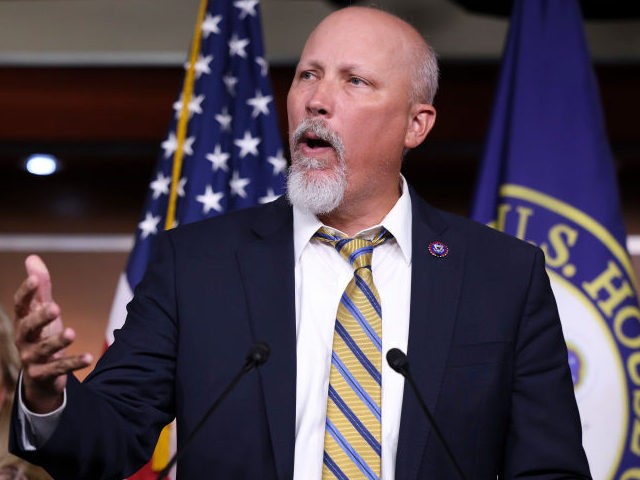Rep. Chip Roy (R-TX) introduced an amendment to the so-called “Respect for Marriage Act” (RFMA) in a final effort to help preserve religious liberty before the House votes on the same-sex marriage bill next week, the Federalist first reported.
Roy’s amendment is identical to Sen. Mike Lee’s proposed amendment, which failed the 60-vote threshold needed to be included in the bill before the Senate ultimately passed the RFMA Tuesday — with the help of 12 Republican senators.
Roy’s amendment would bar the federal government from taking “any discriminatory action against a person, wholly or partially on the basis that such person speaks, or acts, in accordance with a sincerely held religious belief, or moral conviction” that marriage between one man and one woman. The amendment would also give people targeted by the government the right to sue.
“The United States Senate failed to protect Americans of faith when they voted down my friend Senator Lee’s common-sense amendment to protect religious liberty. Unless amended, the so-called Respect for Marriage Act will fundamentally alter the relationship between faithful Americans and the federal government,” Roy told the Federalist.
“Luckily, we have one last chance to amend this legislation when it comes back to the House; that’s why I am introducing Senator Lee’s amendment to the House Rules committee. This amendment should be a no-brainer for every single House Republican, and every American should know whether their representative believes they should be punished for a religious belief,” he continued.
If Roy’s effort is unsuccessful, House Republicans will ultimately have to decide whether they want to pass the RFMA with the newly added “No Impact on Religious Liberty and Conscience” amendment created by a bipartisan group of senators who say the text protects religious liberty. However, many conservatives and faith advocates say the RFMA with the added amendment will “provide nothing that is not already guaranteed” and is an “unnecessary piece of legislation that provides for lawsuits against those who simply hold a different view on marriage.”
The House first voted on the bill in July before the addition of the toothless religious liberty amendment. At the time, 47 House Republicans voted to advance the bill.
Roy previously called on the GOP to vote “no” on the bill this time around, stating that the bill as-is “exposes Americans to persecution for closely held religious beliefs, in addition to attacking marriage.”
Overall, The RFMA was introduced following the Supreme Court’s overturning of Roe v. Wade, due to Democrats’ unfounded concerns that the Supreme Court could use the Dobbs decision to overrule the Court’s Obergefell gay marriage decision. The bill would repeal the Clinton-era Defense of Marriage Act and would require the federal government to recognize any marriage that was “valid in the place where entered into.” The bill would additionally require every state to recognize every same-sex marriage that “is valid in the State where the marriage was entered into.”
The bill also has a “private right of action” clause, which would allow “any person who is harmed by a violation of subsection (b)…[to] bring a civil action in the appropriate district court of the United States against the person who violated such a subsection for declaratory and injunctive relief.” Likewise, attorneys general would be able to bring civil action against any person who violates the law.

COMMENTS
Please let us know if you're having issues with commenting.